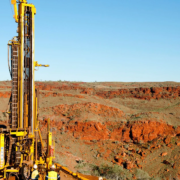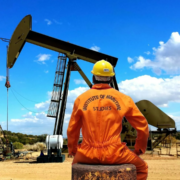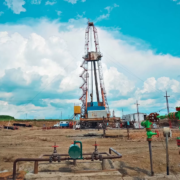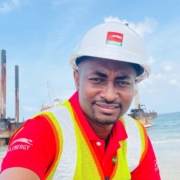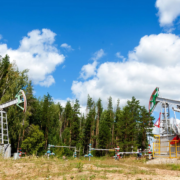In an exclusive interview with Emilia Clipea, CEO of KAREDA, the dynamic leader sheds light on the company’s strategic focus and ambitious plans for oil and gas exploration in Tanzania. KAREDA, originally a Romanian research and development firm known for its cutting-edge reservoir studies, is now setting its sights on frontier regions like Tanzania. Clipea discusses the unique opportunities and challenges in this emerging market, revealing the company’s commitment to discovering new reserves, developing local content and contributing to regional energy development.
1.What is KAREDA, and what’s its mission?
KAREDA, which stands for the “Karpathian Energy Development Agency” was conceived initially as a research and development firm for providing integrated reservoir studies for operator clients in Romania. As the audience might know, Romania is a pioneer in the oil&gas exploration and production segment, having hundreds of oil and gas fields discovered and thoroughly exploited.
KAREDA’s foundation is the country’s best subsurface team, with experience gained all across the world, exploring and developing everything from offshore gas fields to heavy oil SAGD-exploitable reservoirs.
Long term our vision is to become a successful explorer in places where few have ventured yet. We are geographically-agnostic and eager to foster international cooperation.
As opposed to most IOCs and NOCs, we remain and will always be private, which gives us an enormous room of maneuver where decision making is quick and deals can be structured with more flexibility.
2.With many options on the table, why focus on oil and gas exploration in Tanzania?
At present we are aware of many exploration perimeters all across the world. We keep these in a portfolio and we are updating that information constantly.
Now, regarding Tanzania, there are several places in Africa with high potential for hydrocarbon exploration. However, since this is a capital-intensive industry, investors will scrutinize everything and weigh the positives and negatives. Chief among the criteria when doing exploration in frontier basins is (1) the country’s stability, both political and economic, (2) governmental support and ease of doing business, whereby we mean a manageable level of bureaucracy and (3) infrastructure. With above the ground risks mostly reduced to an acceptable level we can move on to analyzing the subsurface.
If a discovery where to be found, then the question “How do we finance its development?” will arise. Simultaneously I am leading KAREDA’s effort to expand into E&P activities, but also together with my partners we are creating an ecosystem (a group of funds and private equity firms) to deploy capital into energy projects. This is exactly where ALVERADA and The Oryx Group International come into play, each one with its specialization.
3.What are the biggest challenges in entering a new oil and gas market like Tanzania, and how do you plan to tackle them?
Our team has decades of international experience and we can relate to past projects to predict what challenges to expect. For instance, and this is the biggest risk by far, is whether we will find commercial quantities of oil and/or gas.
We will allocate a lot of time and effort to study and acquire relevant data, such as gravimetric surveys to try to figure out which might be the best locations to carry out seismic surveying. These surveys alone might not provide the expected range of confidence that we want to start committing capital to a drilling program, but personally I think that each new basin deserves a chance to be explored and as such we shall find, one way or another, the financial capabilities to drill the top locations, such as the largest anticlines we can spot on the seismic amplitude.
Speaking of risk in the exploration business, we are not looking exclusively for siliciclastic or carbonate reservoirs. Unconventionals are also on the list. There is the chance, albeit small, that hydrocarbon accumulations could be discovered even in fractured basement rock. This is something
4. Local content is crucial in Tanzania’s oil and gas sector. How do you intend to engage local talent in your exploration endeavors?
If our initial exploration ventures turn out to be successes, then we have established the presence of a new hydrocarbon province. This means a lot of work for young Tanzanian engineers and geologists. There is an entire universe of knowledge that they can be exposed to. As such, I am looking to get the top oil&gas school – Heriot-Watt University – to do the training. This school is well-known for its research into so many aspects of oil and gas exploration. They also offer 1-year MSc. programs where they implement some of the toughest and best structured approaches to turning graduates into specialists in their areas of activity at the fastest pace possible.
So they can offer a lot of support regarding subsurface disciplines. For field work experience, we should definitely look to use our local Romanian oilfield service companies to teach young people how to operate oil&gas fields. If Tanzania turns out to be an oil&gas success, you will be able to implement the latest technology from day one and thus avoid all the hardship and problems that we’ve faced back home where most fields were discovered in the 20th century.
So using state-of-the-art software and well organized management principles is something we want to emphasis.
Lastly, the beauty of oil&gas is that it is an international industry and competent people (who should also be resilient to commodity price shocks) are always in demand somewhere in the world.
5.What’s your vision for the future of oil and gas exploration in East Africa?
Regardless of what some agencies are saying, oil and gas demand continue to grow. This was my base case when I enrolled in my petroleum engineering program and this is the situation today.
With that being said, right now, according to the US Energy Information Administration, the oil consumption per capita in Tanzania is about 0.3-0.5 bbl of oil/person/year. For Europe as a whole that figure is between 1.5-2.5, while for the US the data points to a shocking 7-8 bbl/person/year.
Increasing the use of oil consumption provides a lot of benefits to society and would be deeply immoral to deny this to other people. So, all the incentives are in place to develop oil and gas resources to be best possible extent, here in Tanzania, in the rest of Africa, or in the world as a whole.
And we haven’t even touched the subject of gas-to-power (G2P) generation, which is one of the most reliable sources of non-intermittent supply of electricity. Maximizing gas production and possibly exports in the form of LNG from existing fields will, on one hand increase financial stance of the country, and second, it will put Tanzania on the map of oil&gas E&P business hotspots. Once you become known to people it will get easier and easier to raise funds for operations.
My personal view, which is now our strategy, is to make as many discoveries as possible. In general investors don’t understand exploration, but our team does. Once you create a field development plan (FDP) and build a financial model you can pitch it to a large pool of opportunistic investors. It is this early-stage niche, namely the exploration phase, which is critical and even majors are shunning away from. If we could fill it, then this would be a major achievement and we are looking to collaborate with the host countries that truly believe in what the oil&gas industry has to offer.



